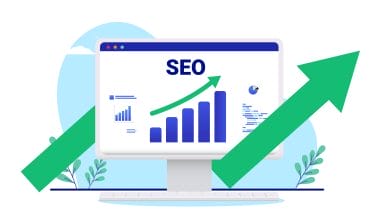Keyword Intent Builds Audience Engagement
This article was published on January 6, 2016
Categorized in: SEO
 When it comes to optimizing your content with keywords, there’s a lot more that goes into choosing a keyword. It’s not a simple matter of performing the research to see which keywords get the highest volume. There are search engine users behind every keyword who are hoping that it will lead them to the information for which they are searching. If the content isn’t meeting their expectations, they’ll click away from your website in the hopes that they can find the information that they need elsewhere.
When it comes to optimizing your content with keywords, there’s a lot more that goes into choosing a keyword. It’s not a simple matter of performing the research to see which keywords get the highest volume. There are search engine users behind every keyword who are hoping that it will lead them to the information for which they are searching. If the content isn’t meeting their expectations, they’ll click away from your website in the hopes that they can find the information that they need elsewhere.
Therefore, taking the time to understand keyword intent before actually developing the content will allow you to build audience engagement over time because the needs of those who visit your website will be met. This will, in turn, encourage people to stay on your website and interact with your brand. They’ll be far more likely to enter into your sales cycle and eventually become a paying customer or client.
Why You Need to Find the Right Keywords
As mentioned above, performing keyword research isn’t a simple matter of using a keyword tool (we like the Google Keyword Planner) to find lists of keywords with a high search volume to place in your content. Here are some things that the right keywords can help you do:
- Get into the minds of leads. Keywords are a great indicator of the types of information your leads are looking for when they perform a search.
- Show you what they need. What needs and desires do your prospects have? Keywords can show you exactly what motivates them.
- Create better content. Each keyword has the potential of giving you enough insights into your leads and customers’ mindsets to enable you to create better content.
How to Get Into the Minds of Searchers
In order to understand the purpose of each keyword, you need to get into the minds of each searcher. Let’s say you’re a software development company that specializes in project management, keywords such as “project management software” will be used when people are in the beginning stages of gathering information. Once the keywords start getting more specific, intent changes.
Here’s a look at the results when searching for “project management software” is searched for on the Google Keyword Planner. Behind each of these keywords lies a specific intent. For instance, people searching for “construction project management software” are looking for specific software that will help manage construction projects. Those searching for “best project management software” want to gain insight as to what the best software programs actually are. People searching for “simple project management software” are likely looking for a software program that isn’t too complicated, possibly because they aren’t particularly tech savvy or because the project they need the program for will be fairly easy to manage.

If any of these keywords are relevant to the type of software program the company has, it’s a good idea to include content on the website that goes along with these keywords.
Using Keywords Properly
The overall goal is to select keywords that will accommodate each stage in the sales cycle. These B2B prospects may enter your company’s sales cycle and stay there for quite some time. At this point, it’s the role of your keywords and ultimately your content to keep them engaged with your brand. . By understanding each keyword’s intent, you can create better content, which will keep your prospects engaged until they’re ready to become paying customers.
Ultimately, use keywords content that are matched to searchers’ needs and interests. You want to not only use the keywords to expose them to your brand, but you’ll also want to deliver plenty of useful information so that they’ll spend time on your site. Eventually, the goal is to capture their email address, engage with them on social media, and regularly churn out new content that they will find helpful. You can’t do this unless you fully understand how content and the keywords relate to each other.
Overall, it is important to first understand the nuances of your sales cycle before you analyze keyword intent and build your content. That way, you can find ways to keep your audience engaged with your brand through every stage of the cycle. When you do this, you will more easily convert these leads into paying customers because they will be nurtured over time.
LIKE AND SHARE THIS ARTICLE:
About the Author: Brick Marketing President, Nick Stamoulis
 Nick Stamoulis is President of Brick Marketing and has over 25 years of digital marketing experience. He works directly with clients on strategy and implementation, helping solve complex challenges through SEO, AI Search Optimziation (GEO), content marketing, social media, PPC, and conversion optimization. Nick Stamoulis has worked with over 500 companies across virtually every B2B industry and also provides digital marketing consulting and training classes, helping companies improve performance and achieve the digital marketing outcomes they are looking for.
Nick Stamoulis is President of Brick Marketing and has over 25 years of digital marketing experience. He works directly with clients on strategy and implementation, helping solve complex challenges through SEO, AI Search Optimziation (GEO), content marketing, social media, PPC, and conversion optimization. Nick Stamoulis has worked with over 500 companies across virtually every B2B industry and also provides digital marketing consulting and training classes, helping companies improve performance and achieve the digital marketing outcomes they are looking for.




